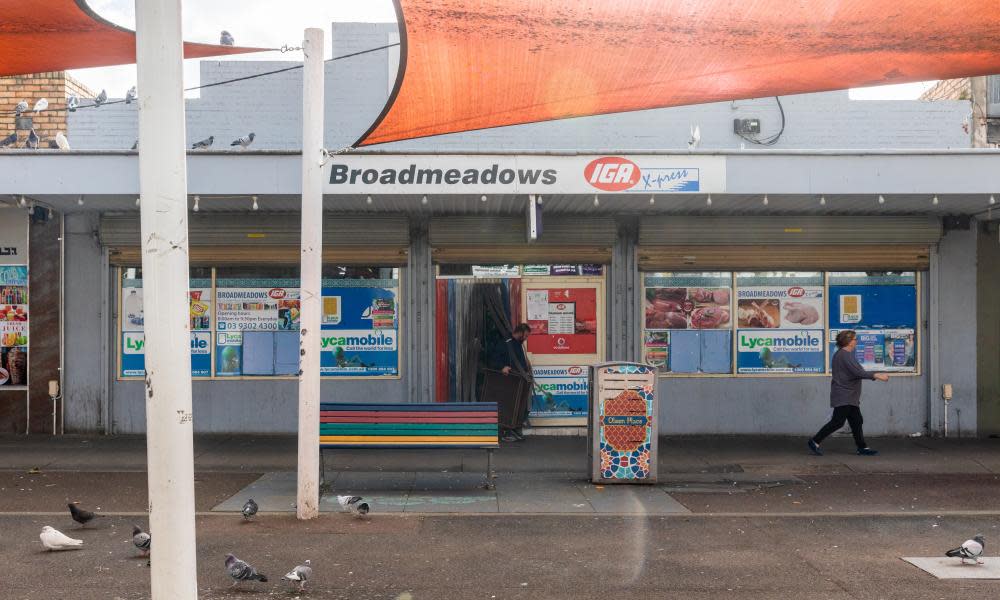I’m a GP in Broadmeadows. This coronavirus hotspot needs support beyond the pandemic

Suddenly, as small Covid-19 outbreaks emerge in Victoria, all eyes are on the health status of Melbourne’s northern suburbs. As a frontline GP in Broadmeadows I am keenly aware that Australia is watching.
What many don’t see: the lines of cars at the mobile Covid-19 clinic we urgently set up, and patients calling the clinic, walking up, waiting to be swabbed, anxious about the risks to themselves, their families, their friends. Wanting to do the right thing.
This is a diverse community: older people, new immigrants, low-income workers, people with disabilities and high psychosocial stressors. The socioeconomic data for Broadmeadows is clear: there are higher numbers of people in this region living from pay cheque to pay cheque. They were invisible to many before this. But now we must see them, because in the era of Covid-19 a poor person’s illness can affect all society’s health.
Related: Melbourne suburbs lockdown announced as Victoria battles coronavirus outbreaks
So there are a few things I’d like to show you about the Broadmeadows front line.
There is incredible strength and survivorship here. I see these qualities every day in my practice. Struggling, hard-working new immigrants have found affordable housing in the area and so the community is diverse and multicultural: fierce grandmothers, caring fathers, warrior mothers and ambitious children. But there is also complex, chronic malaise. And as GPs we see a lot of it.
As local industries have collapsed, poverty levels have increased. Unemployment levels are high. Poverty begets illness, and illness begets poverty. And so my patients come in telling me stories of misfortune and pain, their bodies ailing with high blood pressure, diabetes, mental illness, drug dependence, pain and trauma. Most are kind, ordinary, family-oriented people who are battling to survive among higher levels of financial and social stress.
Dominic hasn’t been eating well because he has no money after paying for his daughter’s specialist appointment. Mary was in tears today because her housemate attempted suicide at the weekend. Ahmed is a refugee living in limbo on a temporary visa. Hala has lost her job at the factory, again.
We need to urgently invest in communities like Broadmeadows to break these cycles of socioeconomic dysfunction.
Most of my patients are kind, ordinary, family-oriented people who are battling to survive
Working in a low socioeconomic community as a frontline GP is hard, and it’s getting harder. Our model of primary care does not serve those on low incomes well, or the GPs who undertake this work. Medicare rebates for general practice services have been stagnant for a decade. In the Australian model of general practice, doctors earn more if we see more patients, quickly. Clinicians who must work more slowly are penalised financially.
Many Australian GPs work around this by implementing a “gap” payment that is needed to provide quality health services. But my patients in Broadmeadows cannot afford to pay a “gap”. This deters clinicians from working with already marginalised patients: those who speak English as a second language, those facing social chaos, the poor, and those with a history of trauma or mental illness. They need longer consultations and slower care to maintain their health and wellbeing or they end up in costly crisis situations.
But for GPs this work just doesn’t pay. Bulk-billing incentives exist for GPs who see patients with healthcare cards, but these incentives are nowhere near bridging the gap between Medicare payments and indexed, Australian Medical Association-recommended GP costs.
Related: Victoria's coronavirus spike: what's causing it, and is anyone to blame?
There has been a lot said about thanking health workers on the frontline of Covid-19. It was even reported that the prime minister, Scott Morrison, would consider a day of thanks for health workers on 26 January. What my frontline colleagues and I would really like is for this country to fund primary care properly. Fund frontline general practice so that it is accessible to all Australians, especially those on low incomes, so that we can recruit and retain high-quality, well-trained GPs to work in low-income areas with the people who need it the most, so they don’t have to rush.
All Australians deserve access to a good GP. Good primary care saves money and saves lives.
There is a trope circulating that people from Broadmeadows don’t care about health – I’ve found the opposite is true. They come into the clinic, beseeching us for compassionate care. I am yet to meet a patient in Broadmeadows who has knowingly breached Covid-19 restrictions. My patients are grateful for any light thrown on a confusing, evolving situation. Everyone wants to live well, and live long.
Caring for the most vulnerable members of society benefits us all. General practice is the backbone of the Australian healthcare system. Done well, it prevents health crises and helps patients survive and break cycles of despair and disability. During this pandemic, and beyond, we need to fund primary care properly.
• Dr Mariam Tokhi is a GP in Broadmeadows, Victoria


